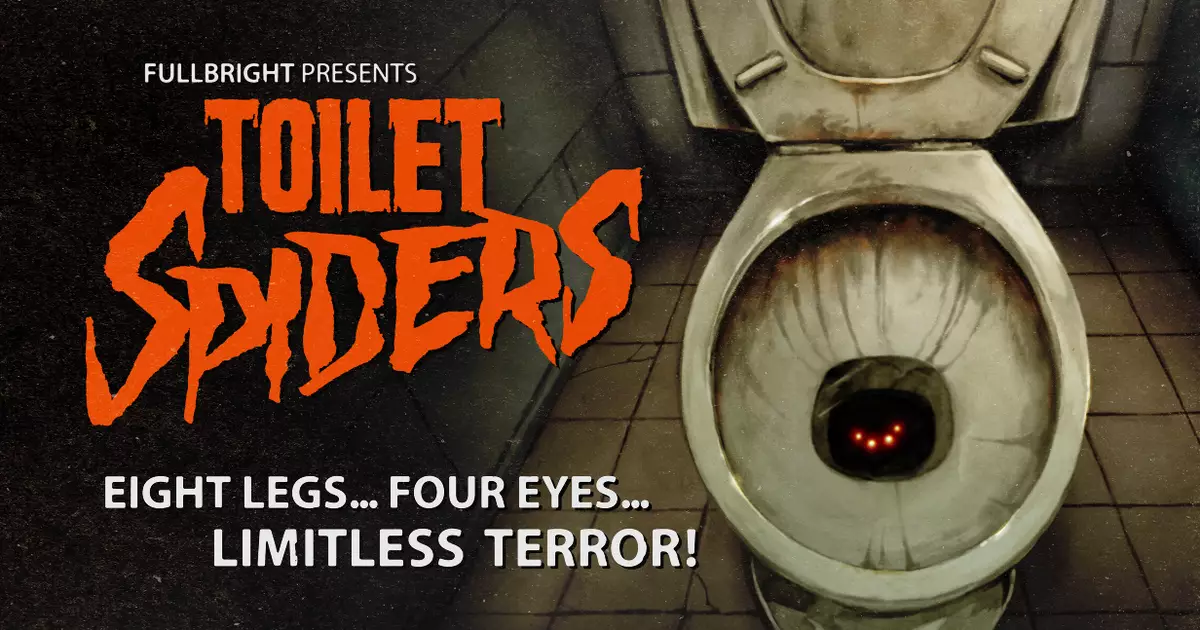Fullbright, a studio heralded for its ground-breaking storytelling approach, made a significant mark with its debut title, “Gone Home.” This evocative first-person exploration game follows a young woman unearthing the complexity of her family’s secrets in a familiar yet unsettling environment. It is characterized by its atmospheric design—the juxtaposition of nostalgia highlighted by 90s decor and the haunting silence of an empty family home. Against this backdrop, one could easily envision the subtle horror lurking in the shadows, amplifying the tension with every creaking floorboard.
However, the studio has since repositioned itself in the realm of video game narratives with the release of its newest venture, “Toilet Spiders.” This title marks a stark transition from their previous thematic depth to a more absurd and horror-centric premise, where players face the surreal yet fearsome concept of giant radioactive spiders lurking within the confines of, oddly enough, toilets. It seems that Fullbright’s shift in creative direction invites gamers to confront their irrational fears through a comedic lens veiled in horror.
At its core, “Toilet Spiders” brings a unique combination of retry-driven mechanics and resource management to survival horror, a departure from the introspective journey that “Gone Home” offered. Players embody a nameless volunteer in an Exclusion Zone, collecting essential items while navigating the lurking terror of monstrous arachnids. The premise itself is immediately engaging, as it combines elements of fear with absurdity—the very notion of a toilet spider capable of inflicting harm presents a playfully morbid twist to the horror genre.
The game operates on a range of scavenging mechanics, urging players to utilize their wits as they balance the meager resources available, such as flash grenades and light bulbs, to fend off or evade their oversized foes. The notion that mundane items can become pivotal in a life-and-death struggle adds an interesting layer of strategy, with each decision carrying weight against the backdrop of terror. In this context, players are encouraged to not only survive but strategize, leading to potential moments of dark humor as they confront their fears with makeshift solutions.
The exploration of horror in “Toilet Spiders” transcends mere gameplay mechanics. The game delivers an implicit commentary that might be interpreted as reflective of the tumultuous changes within Fullbright itself. Following accusations of creating a toxic work environment against co-founder Steve Gaynor, the studio redefined its identity, now few in number yet brimming with creative potential. The absurdity surrounding toilet spiders serves as a metaphorical lens through which one might examine both the personal and collective implications of a transition through chaos.
In a manner reminiscent of horror films that mirror societal fears, the thematic elements embedded within “Toilet Spiders” could engage players in introspection about vulnerability, the absurdity of daily life, and the unpredictable nature of trauma—whether personal, professional, or societal.
As Fullbright embarks on this peculiar journey with “Toilet Spiders,” players are presented with an unconventional take on survival horror—one that thrives on the blending of ridiculousness and genuine fear. The game is a testament to the studio’s willingness to explore new horizons, even as it triggers discussions surrounding their operational history.
Perhaps this new anthology series will forge connections with audiences, highlighting not just the evolution of a game studio but how narratives can morph over time—capturing absurdity, tension, and, ultimately, survival. In an industry notorious for reinvention, Fullbright’s venture into the world of the surreal and truly unsettling is not just a bold move; it is an invitation for players to question what horror really means in a world where spiders are not always just spiders, and toilets can become arenas of dread.


Leave a Reply